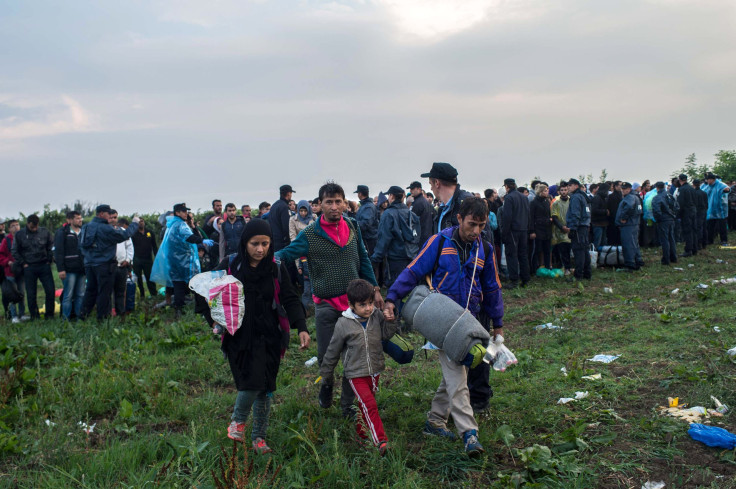EU Refugee Crisis In Serbia: Quota A Condition Of Pending European Union Membership, Will Turn Country Into 'Immigration Colony,' Official Says

Serbia's candidacy to join the European Union depends on the number of refugees it agrees to accept, according to a Serbian politician. The Balkan country could become a vast camp for refugees, who are largely Syrians fleeing the civil war to seek asylum within the EU, said Bosko Obradovic, chairman of the Devri faction, reported Sputnik News.
"Serbia must oppose the dictate from Brussels that plans to turn Serbia and other Balkan states into the largest refugee reception point, an immigrant colony, as it might thus become another condition of Serbia joining the European Union," Obradovic said.
As many as 7,000 refugees were expected to arrive this week into the Serbian town of Bujanovac from neighboring Macedonia, Serbia announced this weekend, the Mehr News Agency reported. About 172,000 migrants have already arrived in Serbia and been processed in the refugee reception camp in the town of Presevo.
The 28 countries already belonging the EU have been mandated to accept set numbers of refugees, a quota that is being resisted by Eastern European members. Under that quota, 20 Eritreans were flown to Sweden from Rome this weekend as the first group of refugees assigned to a particular country, the Guardian reported. A total of 160,000 refugees are expected to be distributed under the quota.
The refugee quota, which was decided by a majority rather than a unanimous vote, has divided EU countries. Romania, the Czech Republic and Slovakia all voted against it. "Only the future will show what a mistake this was," Czech President Milos Zeman said last month, according to the BBC.
"There is an unwritten plan to redirect a refugee flow through non-members of the European Union, such as Macedonia and Serbia, instead of allowing asylum-seekers to continue their journey to Western Europe through EU member states such as Bulgaria, Slovakia and Romania," Obradovic said, according to Sputnik.
© Copyright IBTimes 2024. All rights reserved.












